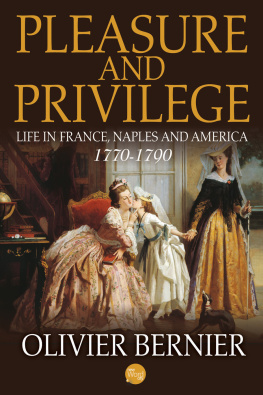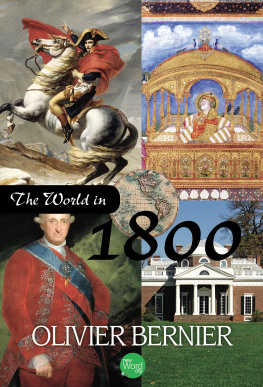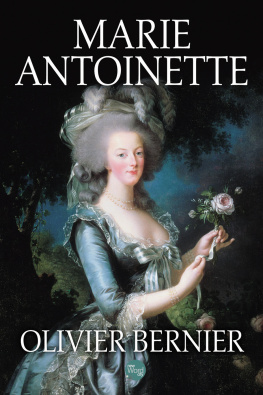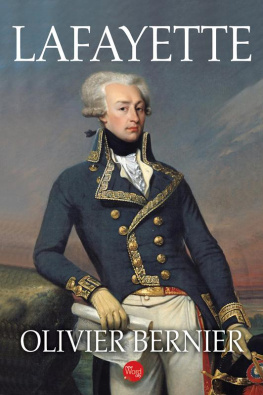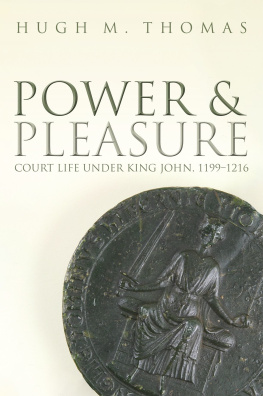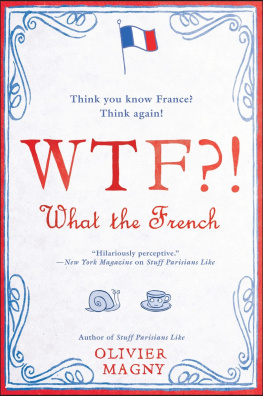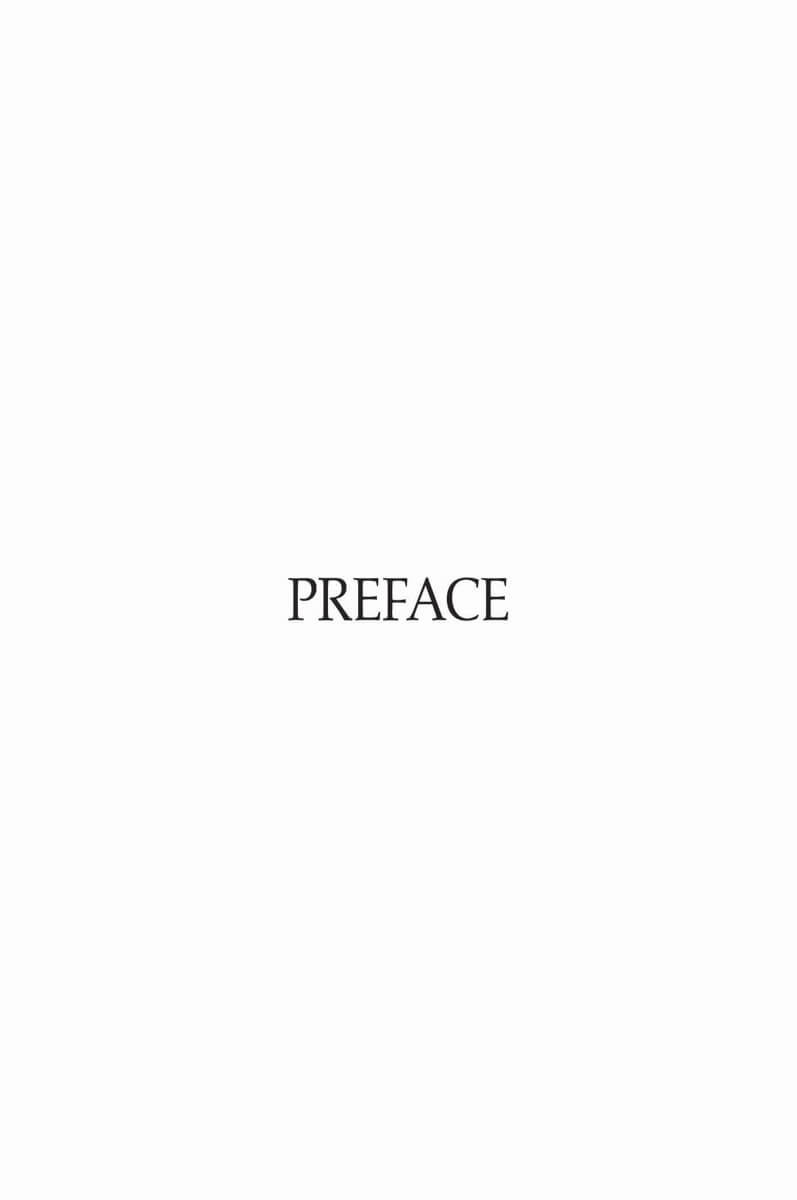The privileged French of the late eighteenth century have always seemed to me the most privileged class in history. Not only did they live in the lap of luxury - that state was available to the vulgarest eras - but they were willing to face the hard fact that the truest pleasure involves the strictest discipline. Ennui makes an easy victim of the sybarite unless he has cultivated good taste, and the sybarite of Paris in the 1770s and 1780s made good taste his god. It ruled him in everything: in decoration, in architecture, in clothes, in cooking, in decorum, in conversation, in friendship, in love. Why have I left out art? Because art was implicit in the whole thing; art was life itself, the good life. There was as much art in the making of a doorknob or a truffled foiegras as in a painting or a tragedy.
Today we tend to put art in a category of its own. Art belongs in museums, in concert halls, in libraries. Art is for leisure time. To look for art where it doesnt belong is to be arty. And what is that but to be superficial - like those silly French aristocrats with powdered hair who fussed over sauces and made faces in the mirror? Its a relief, isnt it, to learn from Olivier Bernier that those people made a bloody mess of it? Taxing the poor and torturing criminals while they shed tears at sentimental comedies? If the guillotine way was a bit rough, they had certainly asked for it!
But the uneasy feeling still remains, in some of us anyway, as we face the glory of the Wrightsman eighteenth-century rooms in The Metropolitan Museum of Art (although Bernier doesnt think much of these) that we should have been all thumbs in such a chamber. And wouldnt the privileged of other eras have been all thumbs too? Wouldnt Augustus, or Lorenzo the Magnificent, or even Mrs. Astor of the Four Hundred? Isnt there something about a life where everything was exquisite that leaves us a bit awestruck?
Olivier Bernier helps us to avoid being overpowered - or even resentful - by supplying us with such a wealth of detail that we actually enjoy the illusion of being French in what Talleyrand deemed the most delicious of eras. Bernier tells us what these people ate and drank, where they shopped, what coins jangled in their pockets, how they sued each other, and how they made love; he follows them through their days and nights, at parties, in palaces, and on their travels. And he explains how every section of their society was pitted against every other in such a complex, interwoven pattern that no force could have saved it from ultimate disaster.
Our old image of the era, a fancy engraving after Greuze or Vernet or Robert, or maybe a combination of all three, begins to shape itself into something more like a photograph. But at just this point, Bernier performs another remarkable stunt. He simply explodes our illusion of reality by following his portrait of France with contemporary pictures of Naples and of the American colonies; the first a kind of parody of what we have just seen; the second a species of idealization.
Naples was an opera bouffe to Pariss comdie larmoyante. It might have seemed to a Talleyrand as his Paris would have seemed to us: too rich, too highly colored, too artificial. Queen Marie Caroline was a crude version of her younger sister, Marie Antoinette. It was a mad world, even more bound to explode; it made Paris seem as sober as Rome of the ancient republic. It was the dream of a bad Frenchman.
The thirteen colonies, on the other hand, were the dream of a good one. They approached, at least to over-sophisticated European eyes, the rustic simplicity and democracy that Rousseau had made so fashionable to his multitudinous readers. If French society was to go any further downhill, it might go the Neapolitan way, but if it was to purge itself, might it not become America?
Of course, it became neither. Revolution in 1789 paved the way for a century that was to have little enough to do with the Paris, the Naples, or even the Philadelphia of 1788. But, having read Bernier, we have at least an idea of how massive the change was to be.
In the last twenty years of the Ancien Rgime in France (1770-90), cultural trends that had been developing for more than a century came to a final, brilliant bloom before disappearing forever. Pleasure and Privilege is both a description and an analysis of this society, with its glamor and weaknesses, its comforts and difficulties. And since most European nations took their cue from Paris and Versailles, the major part of this book is devoted to life in France.
For much the same reason, the author has chosen to look at Naples and America from a French point of view. Why Naples? Because it was the first great European tourist center, a Monte Carlo of the eighteenth century that also happened to have the newly excavated ancient Roman cities of Pompeii and Herculaneum in its backyard. As a result, a new antique-inspired style of architecture, interior decoration, and fashions in costume and coiffures swept Europe and America, thus adding major cultural significance to the pleasures of an exotic landscape and people.
As for America, no book describing France under Louis XVI could ignore it: The War for Independence was a key political issue creating a first but lasting division between liberals and reactionaries; it was a fashion, long and enthusiastically sustained; more, for many followers of Rousseau, America was a continent peopled by good savages, men and women both virtuous and unspoiled who might show the way to a better world. The French came, fought in the war, and went home to publish their diaries and memoirs. Pleasure and Privilege therefore depicts a new French look at America, while still pointing out the errors of fact and interpretation sometimes made by these enthusiastic travelers.
Only those who lived before the Revolution know how sweet life can be, Talleyrand wrote many years later. Pleasure and Privilege is an attempt to resurrect this dazzling yet utterly comfortable way of life so that the modern reader may understand, and perhaps share, Talleyrands feeling, while wondering whether there are not more parallels between the France of Louis XVI and the United States in the 1980s than he might at first have supposed.
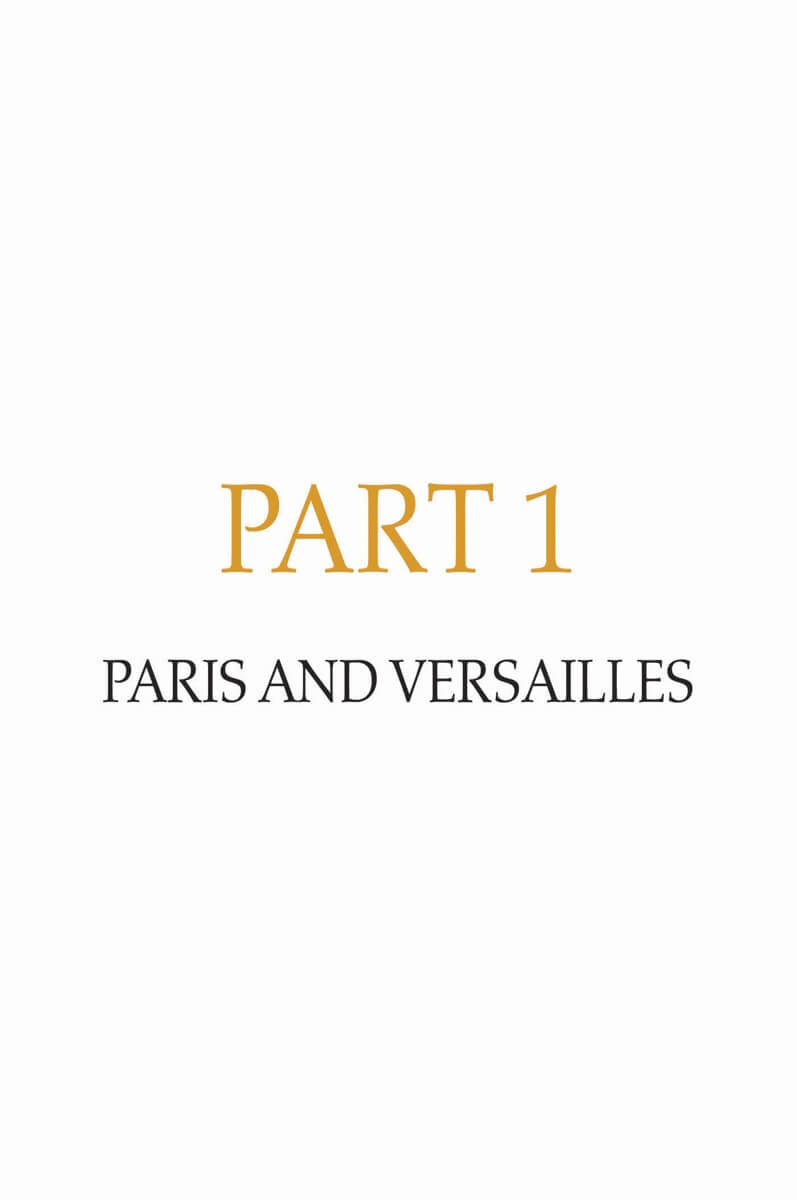
London was cleaner, Rome more ancient, Venice more magical, Vienna cozier; a person might eat better in Lyon, trade better in Bordeaux, sleep better almost anywhere; it was dirty, noisy, expensive; but if almost anyone were asked where he or she most wanted to go, the answer would have been Paris. More than the capital of France, more than the largest city in Europe, Paris was the center. Its influence radiated all over the world. Its books, its fashions, its habits, all were avidly sought and copied. Living in Paris was a privilege, a subject of conversation, a cause for envy, something so rare and thrilling, in fact, that Sbastien Mercier, a Parisian lawyer, sat himself down and, over a period of five years (1783-88), lovingly composed the eleven volumes of his Tableau de Paris after apologizing for its brevity. Paris, it seemed, was almost the entire world.

